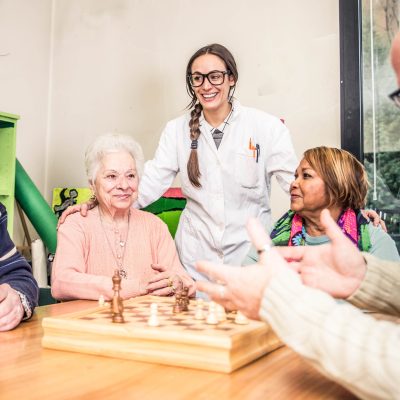As the population ages, the demand for quality care in nursing homes continues to grow. In this dynamic healthcare environment, the importance of critical thinking cannot be overstated. Critical thinking is not just a skill – it’s a mindset that empowers nurses to navigate the unique challenges of elder care with compassion and efficiency. Critical thinking in nursing homes goes beyond routine tasks; it involves assessing, analysing, and adapting to the specific needs of older residents. By using critical thinking, we can anticipate and prevent issues before they arise.
Connecting the dots in critical thinking involves synthesising information, identifying relationships, and understanding how various pieces of information relate to one another. Here’s a step-by-step guide on how to connect the dots:
Understanding Critical Thinking in Nursing Homes
- Gather Information
- Identify Key Concepts
- Analyse Relationships
- Relate to Previous Knowledge
- Seek Patterns and Trends
- Consider Context
- Practice Reflective Thinking
Gather Information: Get the Facts
In the initial stage of critical thinking, begin by collecting relevant information on the topic at hand. Start by delving into various sources of data, such as progress notes, charts, hospital discharge summaries, and notes from general practitioners or nurse practitioners. Ensure you have a comprehensive understanding of the subject by exploring reliable online resources – these can provide valuable insights into the topic.
Identify Key Concepts: Pick out the Important Stuff
By breaking down the information into key concepts or components, you’ll better understand the core of the subject matter. For example, if you’re studying a medical condition, identify its symptoms, causes, and available treatments for the resident.
Encourage yourself to think deeper by asking questions about potential impacts or broader implications:
-
What is going on?
-
What information am I missing?
-
Can I get that information?
-
What does that information mean for the resident?
-
How quickly do I need to act?
-
Do I need to refer to the GP, out-of-hours service, or other allied healthcare professionals?
By consistently engaging with these critical thinking questions, your actions will directly influence the resident’s care and outcomes.
Analyse Relationships: Look for Relationships
By exploring the relationships between key concepts, you can uncover hidden insights and better understand how they affect or are affected by one another. Recognising patterns, cause-and-effect relationships, or correlations between different elements helps your nursing home team make informed decisions and plan strategically.

Relate to Previous Knowledge: Relate to What You Already Know
As you engage with new information, it’s essential to link it back to what you already understand. By relating current concepts to your existing knowledge, you can integrate new ideas more effectively into your mental framework.
Seek Patterns and Trends: Spot Patterns
Exploring patterns and trends within your data reveals valuable insights that might not be immediately obvious to healthcare workers. Whether it’s identifying chronological sequences, similarities, or subtle contrasts, recognising these patterns is key to predicting outcomes and gaining a deeper understanding of your residents’ needs.
Consider Context: Consider the Big Picture
To fully understand the significance of your observations, consider the context in which the information exists. Reflect on external factors that might influence relationships between concepts – for example, environmental, social, or policy-related aspects. This is crucial for grasping the full picture when making decisions in a nursing home environment.
Practice Reflective Thinking:
Finally, make time to reflect on your thought processes and the connections you’ve identified. Reflective thinking strengthens your ability to analyse deeply and supports ongoing professional growth.
In nursing homes, critical thinking is not just a skill – it’s a cornerstone of providing exceptional and compassionate care to older adults. By fostering a culture of continuous improvement, adaptability, and empathy, nurses can enhance their critical thinking abilities and elevate the overall standard of care in nursing homes across Ireland.

